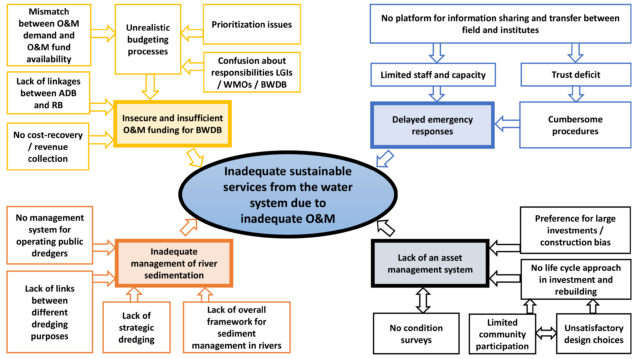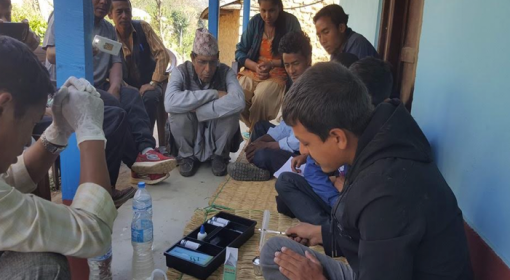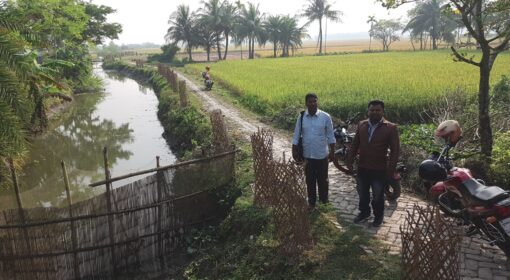Globally, a lack of operation and maintenance and the absence of asset management have been seen as major obstacles to infrastructure projects generating economic growth. This leads to what some describe as a repeating cycle of rebuilding, whereby the lack of adequate asset management leads to premature deterioration of assets and below-optimal operation. This cycle has significant implications for cost-effectiveness in asset management, with the lack of timely minor repairs leading to costly premature rehabilitation in the future. It also manifests itself in inadequate sustainable services from the water system. This cycle in the water sector has significant implications for the sustainable development (and SDGs) of the sector, both globally and specifically in Bangladesh.
Four root causes have been identified jointly with the key stakeholders in the water resources sector of Bangladesh, worked out in more detail in Figure 1:
- Insecure and insufficient funding for O&M
- Delayed emergency responses
- Lack of an asset management system
- Inadequate management of river sedimentation
 With the goal of establishing a shared agenda to address this repeating cycle in the water sector in Bangladesh, the Institute of Water and Flood Management Bangladesh University of Engineering and Technology (IWFM BUET) and MetaMeta – supported by the Partners for Water Program of the Netherlands Enterprise Agency (RVO) – conducted a literature review (on root causes), held stakeholder consultations and guided the co-creation of a shared agenda (for O&M) and ways forward.
With the goal of establishing a shared agenda to address this repeating cycle in the water sector in Bangladesh, the Institute of Water and Flood Management Bangladesh University of Engineering and Technology (IWFM BUET) and MetaMeta – supported by the Partners for Water Program of the Netherlands Enterprise Agency (RVO) – conducted a literature review (on root causes), held stakeholder consultations and guided the co-creation of a shared agenda (for O&M) and ways forward.
![]()



